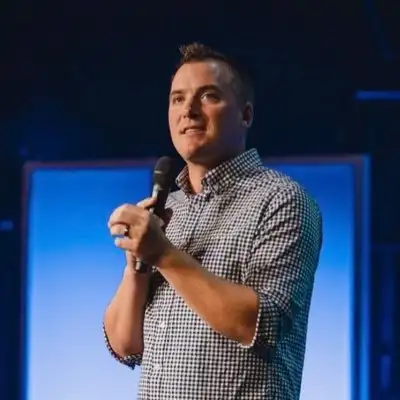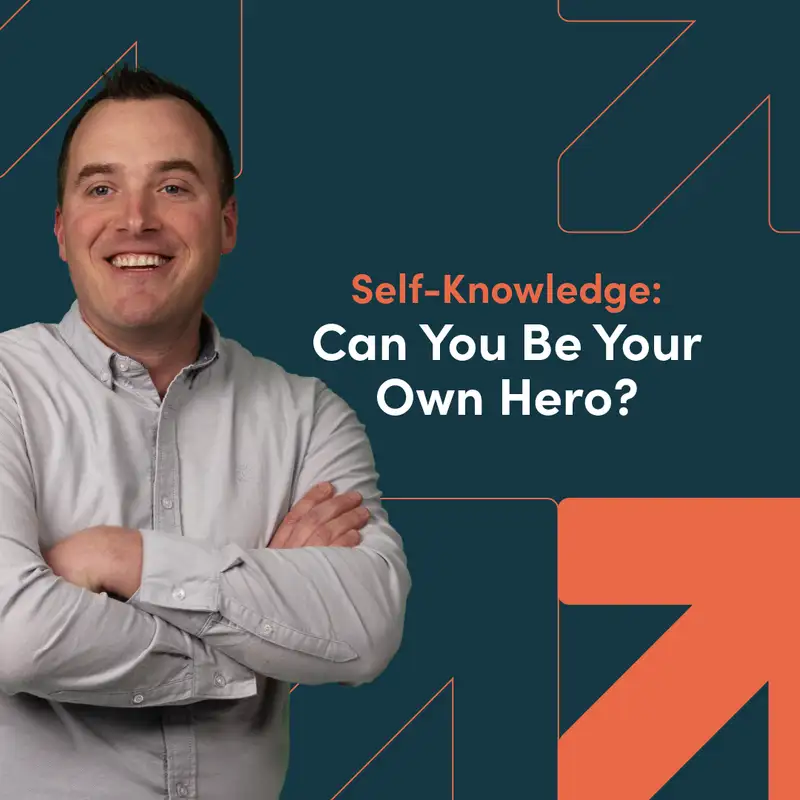Self-Knowledge: Can You Be Your Own Hero?
Hello, everybody. Thanks for listening to Wake Up, Look Up, a podcast that we connect events happening in real time to the gospel of Jesus Christ. I'm Zach Weihrauch. And in today's episode, we're talking about self knowledge, and we're asking the question, can you be your own hero? This is prompted by a great article in the Atlantic this week by Arthur Brooks on that the key, to growth is critical self awareness.
That's right. He's building on the ancient wisdom of know thyself. The idea that to truly grow requires, an accurate understanding of who you are. Even a desire to grow is at least in some ways based in an awareness of where you are deficient. Actually, this isn't just ancient wisdom.
There's a lot of neuroscience behind this, that the key to growing is an ability to overcome self delusion, to buy to be able to bypass the arguments and excuses we make as to why we don't really need to be better in the way we are is okay because change requires discomfort. The discomfort of saying I need to be better at this and the discomfort of engaging in the practices and disciplines that will actually help you be different. One of the things Brooks talks about in his article is acting as if, which is a way of saying that if you know you need to change, you need to begin acting as if you've already changed and let your actual life catch up. You need to begin to practice the ability of telling yourself the truth, living out that truth until it becomes a habit. Now listen, the reason why I bring this up is because one of my favorite things to do on wake up, look up is to show you how ancient wisdom and modern wisdom are really just telling you things that the Bible has been telling you for thousands of years.
Because this whole idea of self knowledge, of being able to admit when you're wrong and and to be able to actually pursue growth is what the Bible calls repentance. That's something the Bible is all about. For example, in Romans two, Paul tells us it's the kindness of God that leads us to repentance. That the one of the ways God shows his love towards us is that he loves us enough to tell us the truth, to show us where we aren't measuring up, to show us when we're living outside the boundaries of the way he designed life to work, of showing us the shortcomings of our character and then in his love and his mercy calling us and prompting us to change. After all, Jeremiah says in Jeremiah 17 that the human heart is desperately wicked.
That's true of you. That's true of me. On our own, we will only become more corrupted, more deficient, more self justifying. That's why a major work of the Holy Spirit in our lives after we come to faith in Jesus, at least according to the book of Ephesians in chapter four and chapter five, is to give us a new self, a new heart, a new way of being. That that comes from saying to God, God, for example, I'm a liar, but you've shown me the wickedness of lying.
You've showed me the damage because I don't want to be a liar anymore. And then allowing the holy spirit through the scriptures to actually lead you to want the truth, to to see a need for the truth, and to speak the truth even when it costs you. This is what the Bible is talking about when God is calling us to a new creation, a new way of being, a new way of thinking. This is what Paul has in mind in Romans 12 when he says that we would be renewed by the transforming of our mind, a change in the way we feel, in the way we think, and in where we are headed. Jesus tells us in John eight that the truth will set us free.
But, of course, that begs the question, free from what? And the answer is free from who we used to be. Christians believe that God loves us, and even in his love will sometimes discipline us, challenge us. Hebrews 12. God disciplines those that he loves because he knows ultimately not just our hope of a fulfilling life, a life of obedience, a life of meaning and purpose, but the hope of people around us is that we would increasingly becoming more like Jesus.
Listen, are you able to acknowledge where you don't measure up? Are you able to acknowledge where you need help, where you need growth? And are you seeking that help through Jesus, through his church, and through his scriptures? Because if you're not, your biggest problem isn't that you're not just going to grow and you're gonna miss out on living the life you were meant to live. Your biggest problem is that you may not fundamentally understand the gospel at all.
Because isn't the core of the Christian message and understanding that I am a sinner in need of grace? And if that's who I was yesterday, isn't it probably likely that's who I am today and will be tomorrow? I need Jesus every minute of every day to help me become who I'm able to become in him. So whether it was Socrates who said it or neuroscience that's the science that is saying it, the truth is Jesus, through his scriptures, has been saying this to us for centuries. Only question left is will we listen?
This episode of Wake Up Look Up was produced by Marcus Cunningham and Hallie Andrews. Our topic researcher is Shanna Young. This episode was directed by Rima Saleh. Our podcast coordinator is Ali Andrews. Our production manager and audio wizard is Marcus Cunningham with tech and engineering support from Matthew Adel and Landon Hall.
I'm your host, Zach Weihrauch. Join us for the next episode of wake up next time.
Have an article you’d like Pastor Zach to discuss? Email us at wakeup@ccchapel.com!
Creators and Guests


